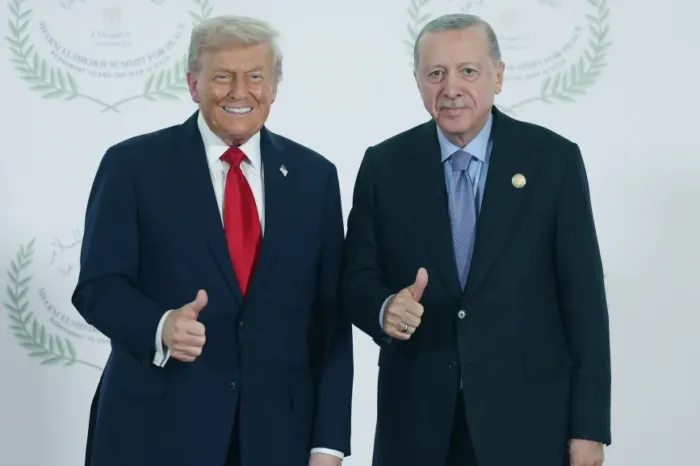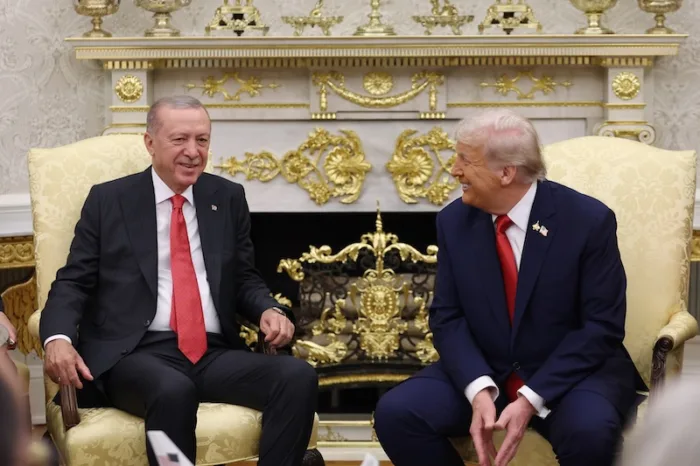How Can an Evangelical Pastor Influence Turkey–US Relations?

A 50-year-old evangelical pastor of the Izmir Resurrection Church has been living in Turkey since 1993. He has now become a source of controversy in the bilateral relationship between Turkey and the U.S. after Trump announced his plans to impose sanctions against Turkey. The U.S. President Donald Trump used a different tone when he tweeted about Turkey, sending a message that the sanctions against Turkey are on the table if Andrew Craig Brunson, an American citizen, is not released.
Before the criminal trial, the Turkish Ministry of Internal Affairs reviewed the status of Brunson in Turkey soon after the coup attempt on July 15. Brunson was informed that he was a “national security risk” with the decision of the Ministry of Interior’s Directorate General of Migration Management. Apart from a judiciary process, the Ministry went through another administrative process for Brunson.
In March 2018, the indictment charge against Brunson was released. According to this indictment, Brunson was allegedly responsible for “forming organized groups with the intention of committing a crime” and “political or military espionage.” The prosecution relied on the testimony of witnesses and authenticated evidence collected from the phone of Brunson. For instance, in relation to the aftermath of the coup attempt, Brunson said: “we were waiting for some events to shake the Turks […], the coup attempt was a shock, many Turks trusted the military as they did in the past […] We will eventually win.” A secret witness, DUA stated that Bekir Baz, a.k.a. Ramazan, a senior member of FETO, met with Brunson, advising him to establish an association to circumvent the restrictions in relation to the establishment of new churches. There have been three hearings in the trial process, and Brunson was released from prison and is now under house arrest.
“We were waiting for some events to shake the Turks […], the coup attempt was a shock, many Turks trusted the military as they did in the past […] We will eventually win”
While the criminal process took place in İzmir, Turkey, the threats coming from President Trump added another layer to the bilateral relations between the two countries. The question arises as to how the President will potentially give economic harm to the Turkish economy. Imposing sanctions is not new, and the Congress has raised the adoption of several laws to compel the administration to implement the sanctions. For instance, the National Defense Authorization Act, as in the final stage of the legislative process, will prevent the administration from delivering the F-35 aircraft to Turkey. The letter written by Defense Secretary Jim Mattis, who was not in favor of introducing such a sanction, had revealed that the administration was not interested in imposing this sanction. However, the recent tweets appear to change this attitude, undermining the interest of the countries participating in the F-35 program.
Another example is the Turkey International Financial Institutions Act, which was passed by the Senate Foreign Relations Committee. According to the draft of this legislation, Congress will oblige the Secretary of Treasury to instruct the U.S. executive directors of well-known international financial institutions to vote against extending any “loan or financial or technical assistance” to Turkey. The increasingly aggressive attitude of the president will lead his administration to sign this law once it has passed Congress and to implement the obligation to instruct officials in the international financial institutions.
As to an existing law, Countering America’s Adversaries Through Sanctions Act (CAATSA) obliges the administration to impose sanctions against Russia, Iran, and North Korea. However, the administration can introduce a waiver, deciding to exclude Turkey from punitive measures based on a determination that the sanctions would run against the “vital national security interests” of the U.S. Despite this authority, the recent tweets of Trump show that the administration is no longer interested in issuing such a waiver to protect the relationship between the two countries.
This article was written by Hasan Yucel and first published at The New Turkey on July 29, 2018.























